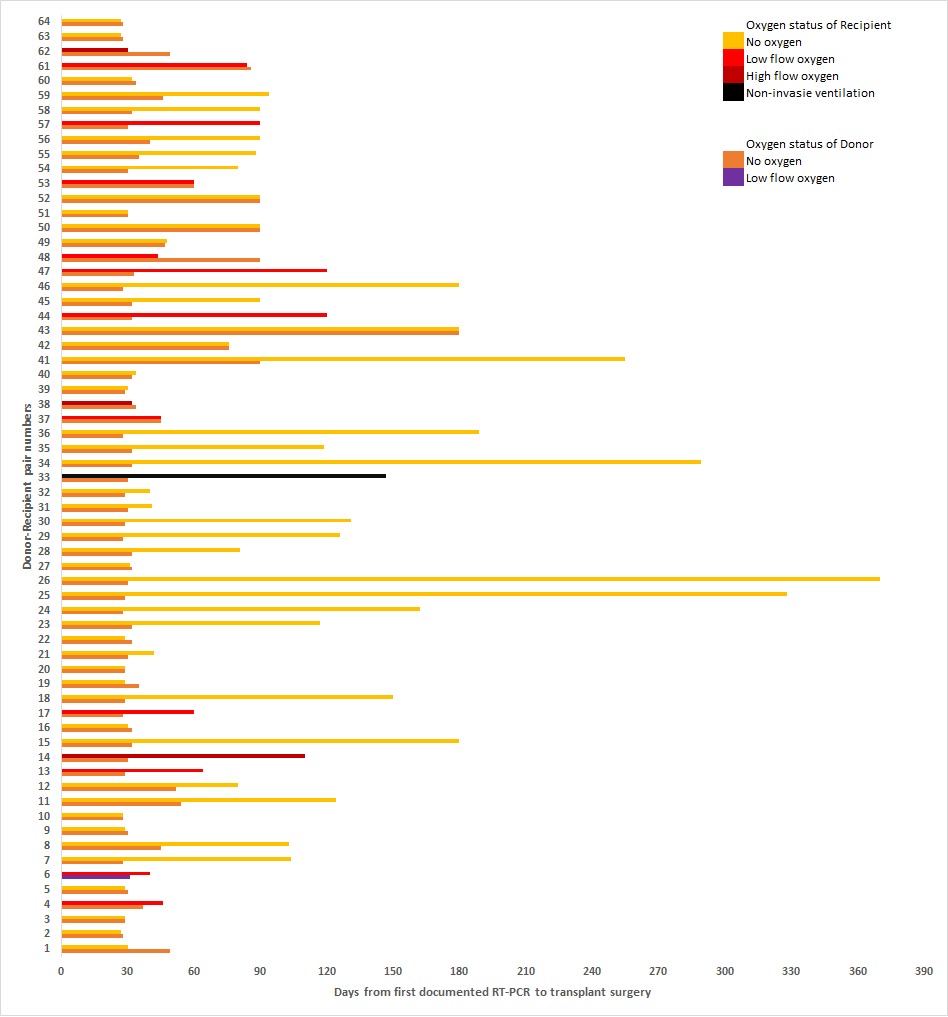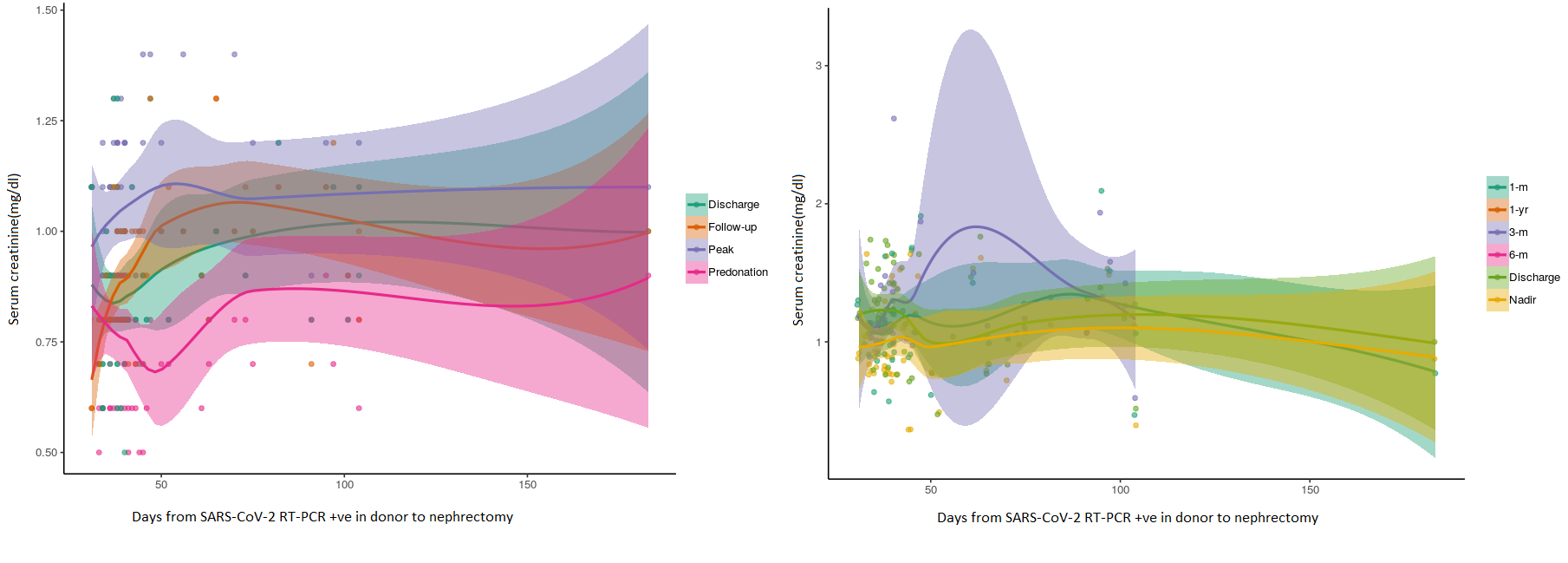Outcomes of living donor kidney transplantation after SARS-CoV-2 infection in both the donor and the recipient: a multicenter study running title - LDKT in COVID-19 survivors
Sanshriti Chauhan1, Vivek Kute1, Himanshu Patel1.
1Nephrology and Transplantation, IKDRC-ITS, Ahmedabad, India
Introduction: The evidence for living donor kidney transplantation (LDKT) when both donor-recipient (D-R) pair had a history of COVID-19 infection is scarce.
Methods: We explored the protocol, outcome, and follow-up of 64 LDKT when D-R pair had recovered from COVID-19 in a retrospective, multicentre (n = 12) study from India between October 29, 2020, to December 1, 2021. There was no change in induction/ immunosuppression regimen in the study among different COVID-19 severity and is similar to standard practice.
Results: Clinical severity in patients and donors was asymptomatic/ mild without requiring oxygen therapy in 77%(n=49), 95.4%(n=63) and moderate/ severe 4.6%(n=1) illness requiring oxygen therapy in 23%(n=15) and 4.6%(n=1), respectively. The mean ± SE(SD) waiting time from first documented RT-PCR negative to surgery for recipient and donor was 90.9 ± 9.27(74.1) and 47±4.5 (29.2) days respectively. Six (9.3%) episodes of biopsy-proven acute rejection (BPAR) were reported at follow-up of 214 ± 14.8(119) days and median (IQR) of 227(109-309) days. The locally weighted scatter plot smoothing curve for creatinine during follow-up in the D-R pair showed no trends of raised creatinine in the context of waiting time from COVID-19 to surgery. No graft loss, death, reactivation/reinfection, and any complications relating to surgery or COVID-19 were reported in the study.
Conclusions: Our report shows excellent outcomes and follow-up data of LDKT in recovered D-R pairs with the standard immunosuppression protocol. To date, this remains the first and the largest study of LDKT when D-R pair had prior COVID-19.



right-click to download
